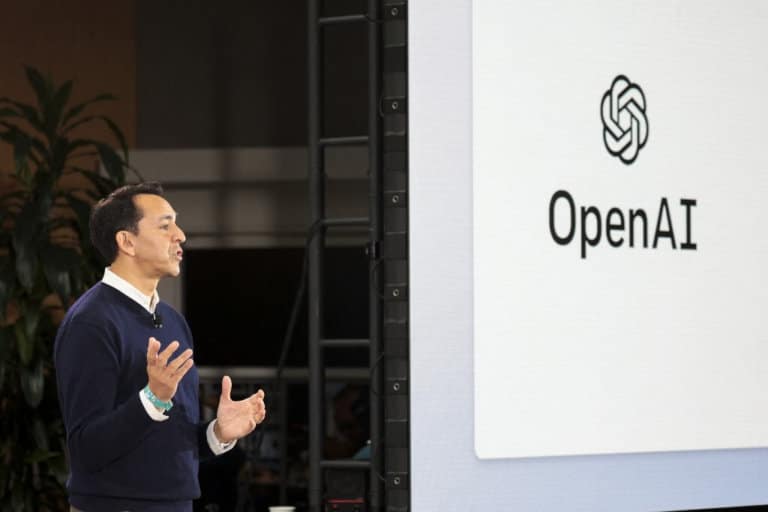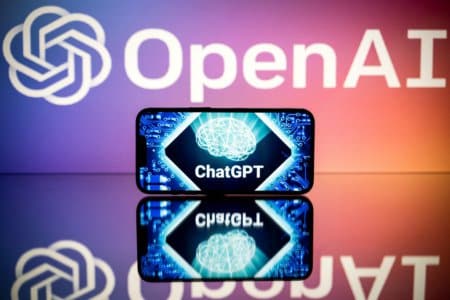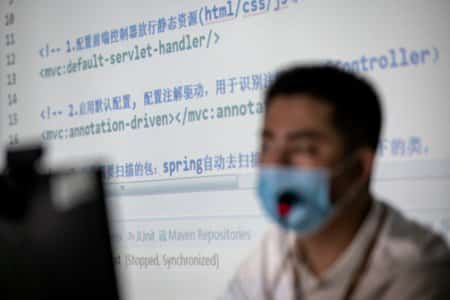
“Students – you’re brighter than that, you don’t need to do it,” Steve West, vice chancellor of the University of the West of England reminds students.
He warned that using AI to create essays would be an “assessment offence.”
The conversational artificial intelligence (AI) chatbot ChatGPT has proved itself to be a powerful tool for students, teachers, creatives and developers.
For example, a Midwestern high school senior told the Washington Post that he used the chatbot for two homework assignments: a computer science quiz and a coding assignment.
A Twitter user reportedly used the chatbot to take an SAT exam.
West’s opinion is not an isolated one. A University of Bristol spokesperson told BBC: “ChatGPT’s unauthorised use, like that of other chatbots or artificial intelligence software, would be considered a form of cheating under our assessment regulations.”
Others are taking it one step further and feel AI tools should be banned in schools. One representative from Seattle Public Schools shared that the district banned ChatGPT from all school devices.
“Like all school districts, Seattle Public Schools do not allow cheating and require original thought and work from students,” the representative told Geekwire.
So much controversy and so much hype — but can ChatGPT write essays better than university students?
Artificial intelligence chatbots vs. university students

Many teachers and institutions warns students that the use of artificial intelligence for assignments will be considered an academic offence. Source: Frederic J. Brown/AFP
What can artificial intelligence like ChatGPT do?
What makes this chatbot unique is its ability to learn quickly.
It is “fed” hundreds of billions of words in the form of books, conversations and web articles based on a model known as a large language model.
ChatGPT’s ability to produce entire sentences comes from its “learnings” of the model — making it a powerful tool that anyone can ask to do basically everything, from translation to writing essays.
To use this chatbot, follow these four simple steps:
- Click here to go to their website
- Create a free account
- Type in a question
- Wait for a response
Do note that the servers might be down when there is a huge amount of users on the website.
Using the artificial intelligence chatbot on your previous homework

The rising prominence of technology in higher education has its pitfalls — one of them being plagiarism. Source: Ethan Miller/Getty Images North America/Getty Images via AFP
A former University of Bristol student experimented using ChatGPT to answer an old essay question he completed.
Pieter Snepvangers reportedly asked the bot 10 questions and received a 3,500-word essay, which he then spent 10 minutes formatting for the experiment.
His original score on the essay was 65% when he first wrote it. With ChatGPT? His essay scored 53% just 12 marks off his initial grade.
“I got 65% and it took two weeks when I did it. ChatGPT was 12 marks off — that’s scary,” said Pieter Snepvangers.
Snepvangers’s essay was graded at 53% by one of his former lecturers, who was fully aware it had been created using artificial intelligence.
“ChatGPT didn’t produce in-text referencing, but my lecturer said if I had done that it would have scored a high 2:2 or a 2:1,” said Snepvangers.
“He [his lecturer] said the English was convincing, but it often danced around answering the actual question.”
Comparing AI and student work side by side exposed one of the big differences between the two.
Machines – computers in the case of ChatGPT – produce output that is perfect. And even if there are defects in production, those marks are likely to be identical across all of the output.
Academics have pointed out perfect spelling, and the absence of grammatical errors as a clear tell that students are using generative AI.
His lecturer also told BBC four out of 33 essays handed in for one module this year “looked fishy from an AI perspective.”
“Don’t take the chance,” West reiterates.










